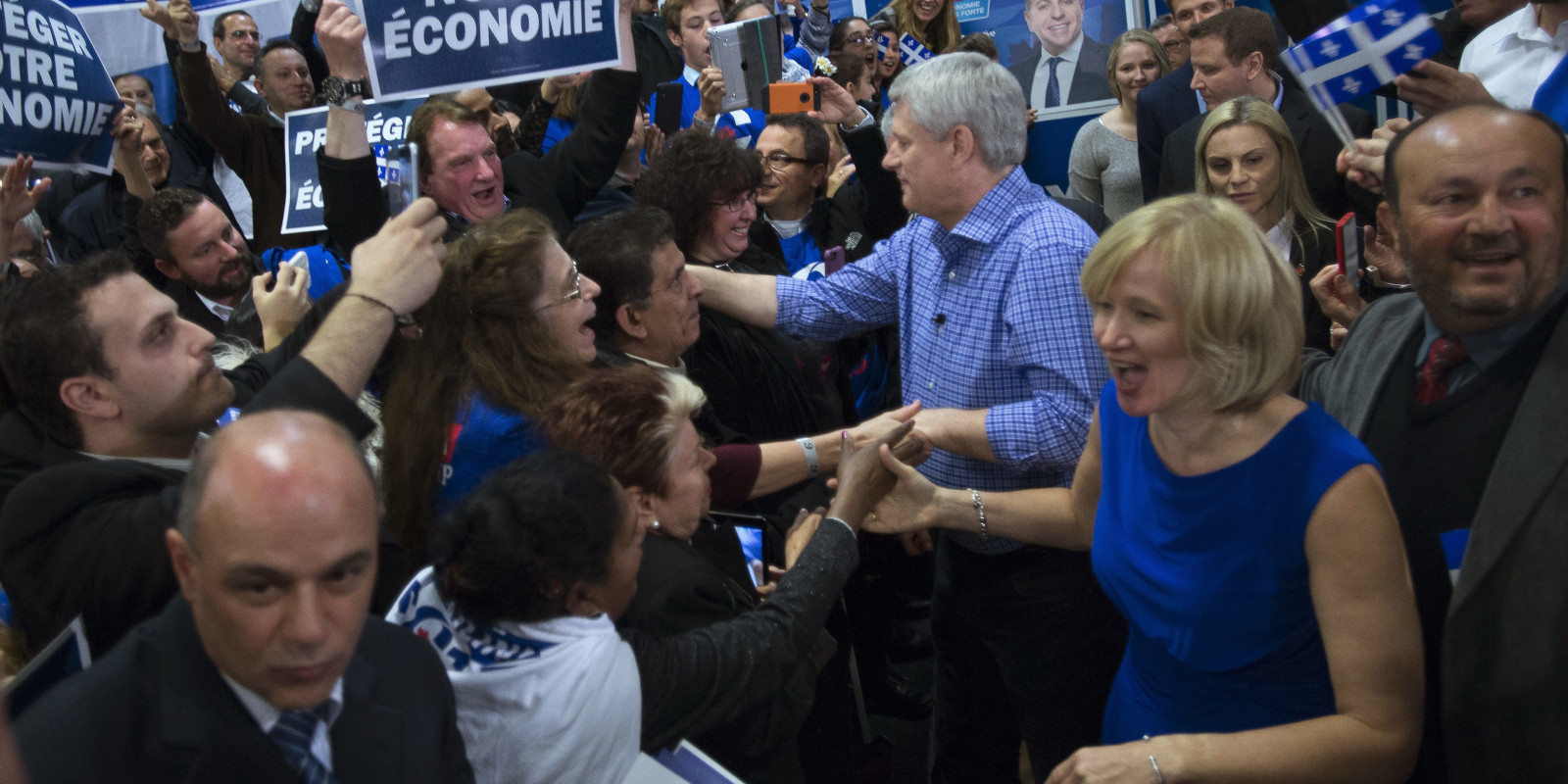Predicting the results of the next election may be as a simple as asking Canadian women for their thoughts on Pierre Poilievre.
In a world of increasing gender polarization, where women are leaning left and men are leaning right, the last three decades show an ominous trend for the Conservative Party: the more the gender gap widens, the less likely the party is to win elections.
A recent Gallup poll found almost 45 percent of American women aged 18 to 29 now identify as political liberals, up from 30 percent in 2012. On the other hand, men aged 18 to 29 identifying as liberals decreased from roughly 30 percent in 2012, to 25 percent today.
Data collected in Canada indicates a similar, but less drastic, gender divide.
Longtime Conservative strategist Melanie Paradis says she doesn’t see it as a major problem for society but says it could certainly swing elections.
“I don’t believe we are currently polarized between sexes; nor do I worry that we will be. We are talking about shifts of a few percentage points, which absolutely matters for winning elections and subsequently for governing,” says Paradis.
It’s true that a larger gender gap has consistently correlated with election losses for the Conservative Party and its legacy parties.
According to data from Canadian Election Study, the Conservatives have only succeeded in closing the gender gap outside Quebec in 2004. The party kept the gap within five percentage points in the three subsequent election victories, which culminated in a majority government in 2011.
The Conservatives have never won an election where the gap widens beyond 6 percentage points, even going back to the successive Liberal majorities in the 1990s and when the Canadian Right was represented by the Progressive Conservative Party, the Reform Party, and, in 2000, the Canadian Alliance.
These results suggest the Conservative Party cannot afford to let the gender gap between itself and the Liberals exceed the high single digits.
Why has the party been unable to boost its salience with female voters?
National Post columnist Sabrina Maddeaux says the Conservatives need to elevate younger and stronger female voices to connect with Canadian women, as well as overcome their inability to successfully address issues like child care and climate change.
“I heard a lot from peers that these issues decided their last vote, and Conservatives didn’t really have a solution for them as much as they just opposed the Left’s positions,” says Maddeux. “At the same time, Justin Trudeau’s Liberals have been very, very good at weaponizing abortion as a wedge issue.”
Maddeaux says the influence of social conservatives like Leslyn Lewis within the party who oppose abortion is another reason why the Conservatives have failed to make inroads with women on voting day.
“If the next Conservative leader wants to win in a general election, they will have to come up with modern answers on issues that matter to women,” says Maddeaux.
Progressive pundit Amanda Alvaro says the overruling of Roe v. Wade by the mostly Republican-appointed Supreme Court of the United States weighs on the minds of Canadian women as well.
In the wake of Roe’s overturning, 56 percent of Canadians surveyed by Ipsos believe women should have access to an abortion at any time, 13 points more than in 2010. However, while a large majority of older Canadians say women should have unrestricted access to abortions, just half of Canadians aged 18 to 34 agree.
“Whether or not Roe v. Wade actually impacts access for Canadian women, they have now been shown what could happen,” says Paradis. “It doesn’t matter how hard it would be to do that here, it’s a perceived threat. And that threat will be used in campaigns for as long as it keeps working.”
Regarding abortion, Maddeaux says Canada’s conservative politicians have largely failed to create enough space between themselves and the Republicans.
“Many see the direction Republicans have gone and associate all conservatives with the same politics and positions,” says Maddeaux. “Our Conservative Party also probably hasn’t done enough to actively distance themselves from that.”
Alvaro believes progressive policies also push younger women toward the political Left, citing polling showing women are inclined to support investments into sectors like child care and health care.
“Women still hold disproportionate responsibility for family decisions in regards to children and aging parents, so parties who champion those policies tend to attract a stronger female vote,” says Alvaro.
One widely-circulated reason for why women have progressive inclinations in Canada and the United States has been their growing presence in universities, with more women than men attending in North America since the 1980s.
While Alvaro agrees that the growth of higher education amongst women influenced their political shift, Maddeaux says it was less impactful in the last fifteen years than in previous decades and that the political gender divide is not permanent.
“As we’re starting to see with the once written-off younger demographic, the right politician with the right messaging and policies can reverse this trend,” says Maddeaux, who adds that Canadians are fed up with Trudeau and NDP leader Jagmeet Singh.
Alvaro says data suggests that the winning formula for parties is to attract a large amount of support from one gender and be competitive with the other, but when the gap widens and parties become less competitive, they run into deadlocks.
“At the end of the day, a vote is a vote. So if the Liberals attract more women to the party and Conservatives attract more men, how much does that change the outcome of an election result?” says Alvaro “What it will do potentially, is change the type of policies that the parties put in the window.”
Despite some data showing the Liberals have an advantage among Canadian women, Paradis says the party has done little to aid young women and mothers on issues like shortages in baby formula and infant Tylenol, and that their national $10-a-day daycare plan is insufficient.
“To the extent the Liberals court their vote, it just seems to be to scare them about guns and abortion access,” says Paradis, who believes young women and mothers are a demographic taken for granted by all the parties, including the Liberals.
In her opinion, winning over women would require a commitment similar to Doug Ford’s outreach to organized labour in the last Ontario election, which helped his party win an overwhelming majority.
“I have yet to meet anyone in politics interested in making that investment, but if you are out there, call me and let’s cause trouble,” says Paradis.
Recommended for You

Michael Kaumeyer: Polite decline: Canada’s aversion to being our best is holding us back

Howard Anglin: Lament for a Lament

‘A place where anybody, from anywhere, can do anything’: The Hub celebrates Canada Day

Peter Menzies: It’s no wonder Canadians are tuning out the legacy media




